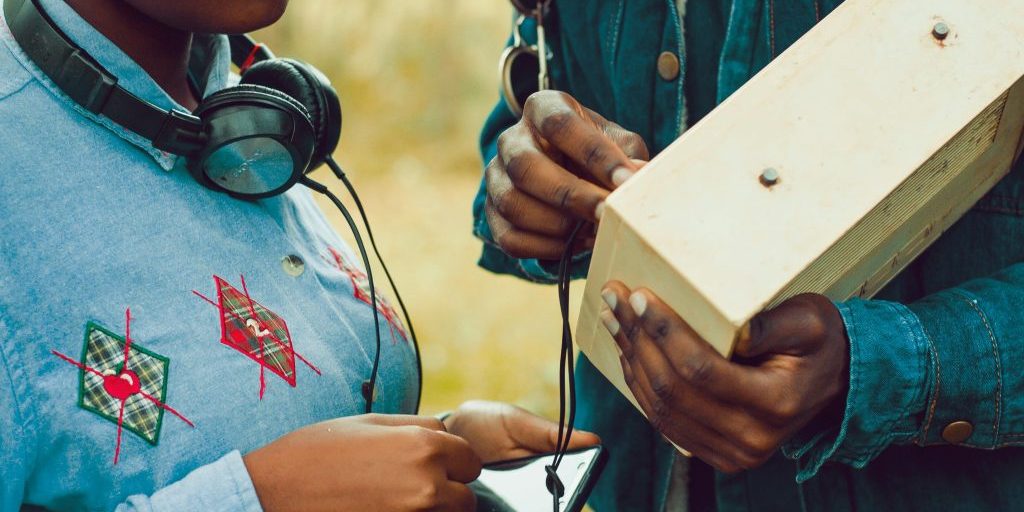Common framework sees Media Viability Manifesto presented to EU delegates
PICTURE: Nikolaos Dimou/Pexels
Media Viability Manifesto Initiative
The global media development community’s efforts to address the challenge of media viability have been fragmented. Terms like ‘viability’ and ‘sustainability’ are frequently used interchangeably without precise or shared definitions. The strategies employed to confront the problem can lack collaboration and coherence.
Too often, interventions are stand-alone, reactive, and short-term. Practical approaches and project implementation tools are rarely coordinated or synchronised, leading to frequent reinvention of the wheel or overlapping efforts.
The need for more systematic, cross-institutional exchange and learning, a joint research and advocacy agenda, and common strategic goals has been identified by many. To date, these needs have not been tackled sufficiently. All these factors limit the potential for meaningful impact and systemic change through policy and investment support efforts.
The Media Viability Manifesto (MVM) initiative is designed to:
- Better respond to local needs by making use of lessons learned and synergies, avoiding overlap and repetition to improve efficiency and impact in the field of media viability
- Enhance collaboration and coordination among stakeholders, particularly by implementing more inclusive practices that promote local ownership and contextually relevant actions
- Be able to make the case to donors in a more systematic and convincing way, as a sector, for (increased) support for media viability
- Have a common, global framework guiding the direction for media viability work in the coming years, including joint goals between local, regional, and international stakeholders
This groundwork is urgently needed as an overarching basis for tailor-made, context-specific individual strategies and between stakeholders across world regions, ideally all contributing to solving the systemic media viability crisis
The MVM initiative was collectively developed in an open and inclusive process across five stages from 2022 to 2024. It is the culmination of input and expertise gathered from 152 individuals from 55 countries, representing 86 organisations.
These efforts included:
- A media viability survey, with 64 respondents from 29 countries and 45 organizations
- A conference session, facilitating discussions with 41 participants from 25 countries and 34 organisations
- A validation workshop, attended by 64 participants from 28 countries and 44 organisations. Taking into account repeated consultations, the MVM benefited from the perspectives, inputs and expertise of 152 individuals from 55 countries and 86 organisations
The development of the MVM unfolded in five key milestone events:
Mapping exercise and co-creation of conceptual understandings
In 2022, DW Akademie and International Media Support conducted a comprehensive mapping exercise involving desk research and interviews to explore existing media viability concepts, tools, and approaches.
This groundwork was followed by an in-person, co-creation workshop where participants developed a preliminary draft of a joint conceptual framework for media viability.
Global media viability survey
In 2023, a survey was distributed to a wide range of media development professionals around the world. It explored the understandings of commonly used terminology related to Media Viability across various contexts and gathered perspectives on the draft conceptual framework.
Workshop on Media Viability
To broaden the discussions around a common understanding of media viability and gather additional input on the evolving MVM, the initiative convened an interactive session at the International Association for Media and Communication Research pre-conference on media viability in 2023.
The insights highlighted the need for a common strategic foundation, leading participating organisations to commit to developing a joint ‘Theory of Change’ for media viability.
‘Theory of Change’ development
During a facilitated, in-person workshop in late 2023, the MVM core group jointly developed a draft ‘Theory of Change’ for media viability. The main intention behind creating this shared framework for the media development sector was to enhance the impact and effectiveness of media viability programmes.
The ‘Theory of Change’ outlines a logical sequence of steps where the media development and support sector can design strategies and co-ordinate its efforts. It is a framework that can be adopted flexibly, as a whole or in parts, ensuring distinctive and contextualised approaches.
The intended impact identified for the Manifesto’s ‘Theory of Change’ is financially and editorially independent and diverse media that are economically sustainable
It can be read in multiple directions, and can be operationalised by attributing concrete measures and even indicators to the different outcomes.
‘Theory of Change’ validation workshop
Prior to finalising the MVM, the draft ‘Theory of Change’ underwent validation with external stakeholders in an interactive online workshop in February 2024.
The MVM addresses actors engaged in supporting the fundamental right to freedom of expression and access to information around the world. Particularly, this includes:
- Media development organisations and their media and civil society partners across all regions
- Government and non-governmental donors
- Policy and decision makers
- Think tanks
- Academics
- Media organisations of all sizes
We would like to build a community around the MVM initiative. We aim to develop a research agenda for media viability, and within that, gathering evidence and measures of the impact of support to media viability (and the wider information ecosystem).
Further, the Manifesto could be used as a co-ordination mechanism or prioritisation tool such as for an advocacy action plan looking at advocacy for what, to whom, and how. It can serve as a catalyst in engaging new donors, guiding them through the complex field of media viability.
The initiative is a sea-change in the systematic collaboration of the global media development community in the field of media viability. In demonstrating willingness to work and learn together, the MVM paves the way for more coordinated and impactful action.
Now it will depend on us, the different stakeholders engaged in strengthening media viability worldwide, to make the most of this common framework—and bring it to life. Certainly not for its own sake, but to safeguard the fundamental right to freedom of expression and access to information around the world.




